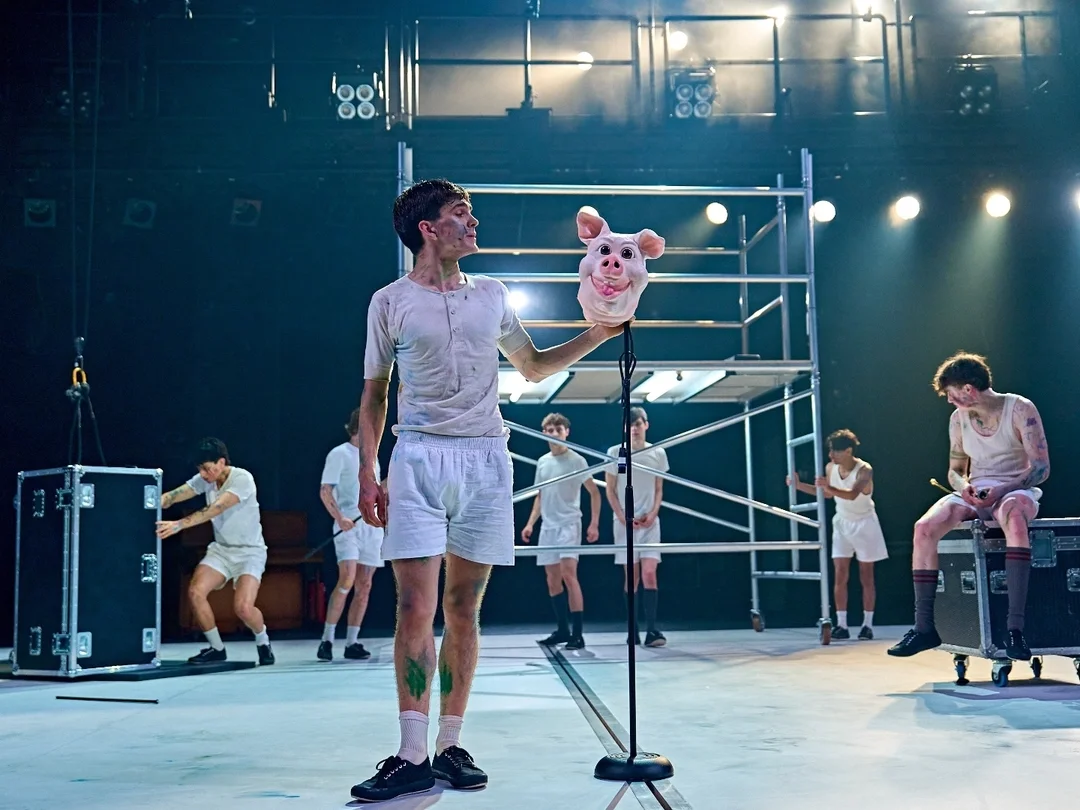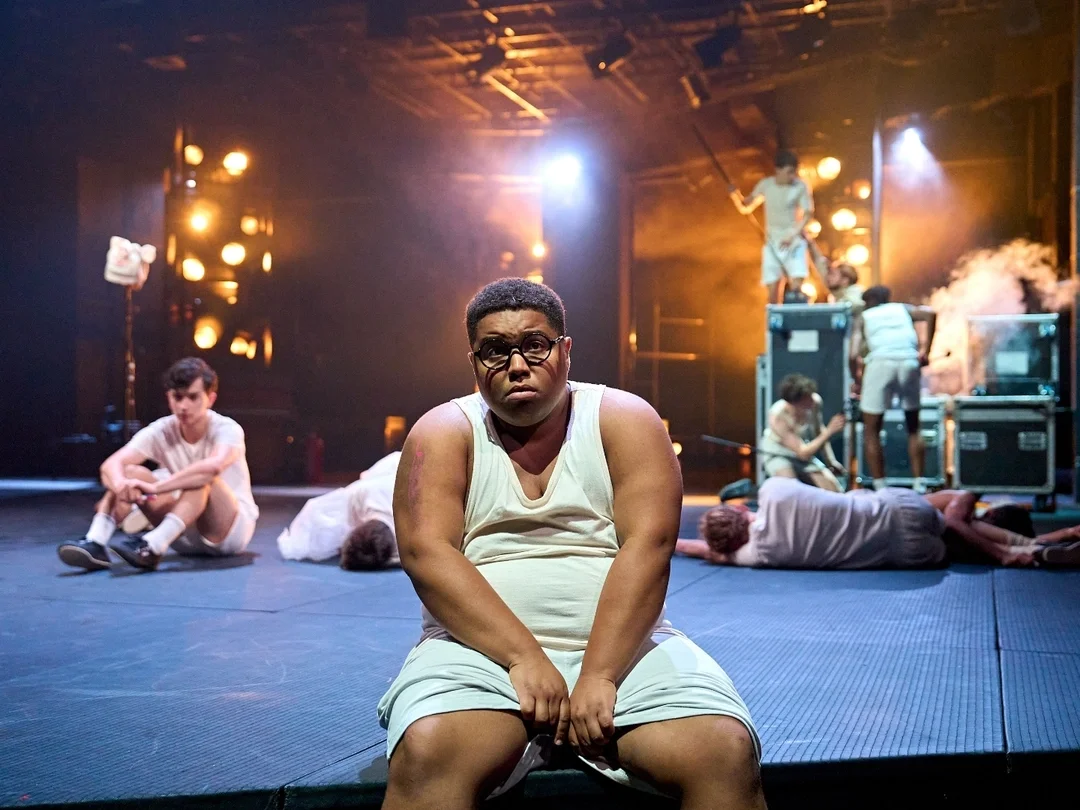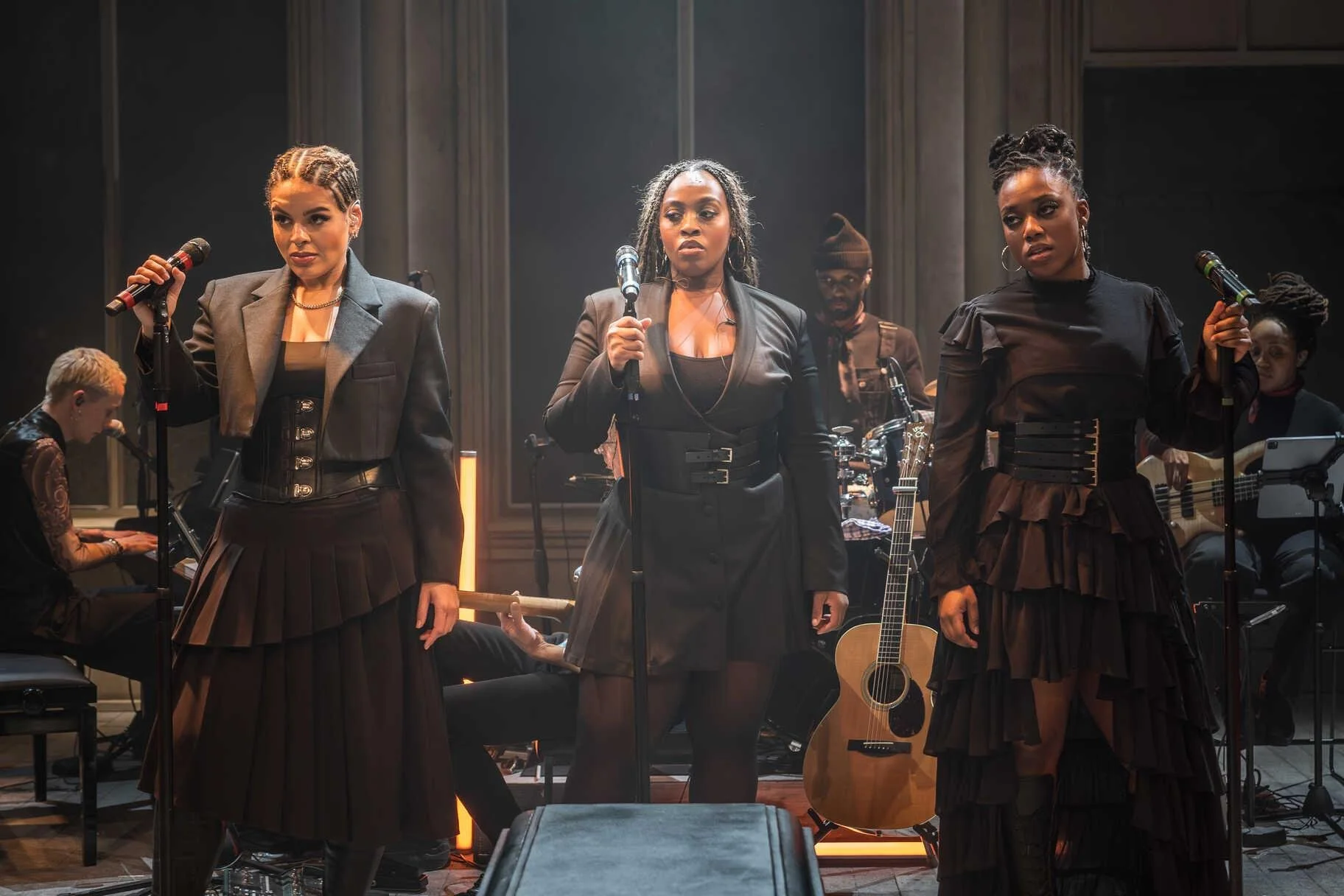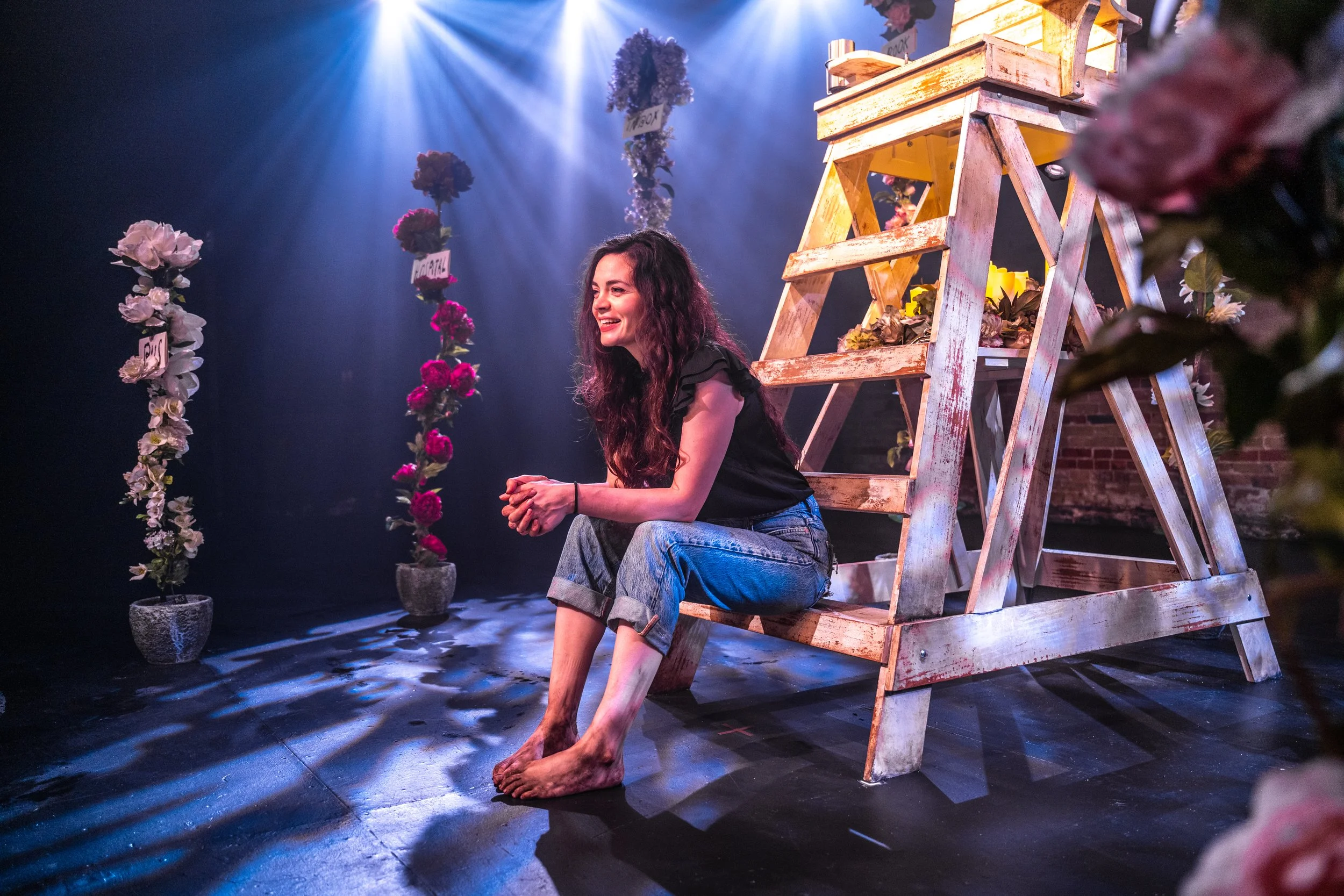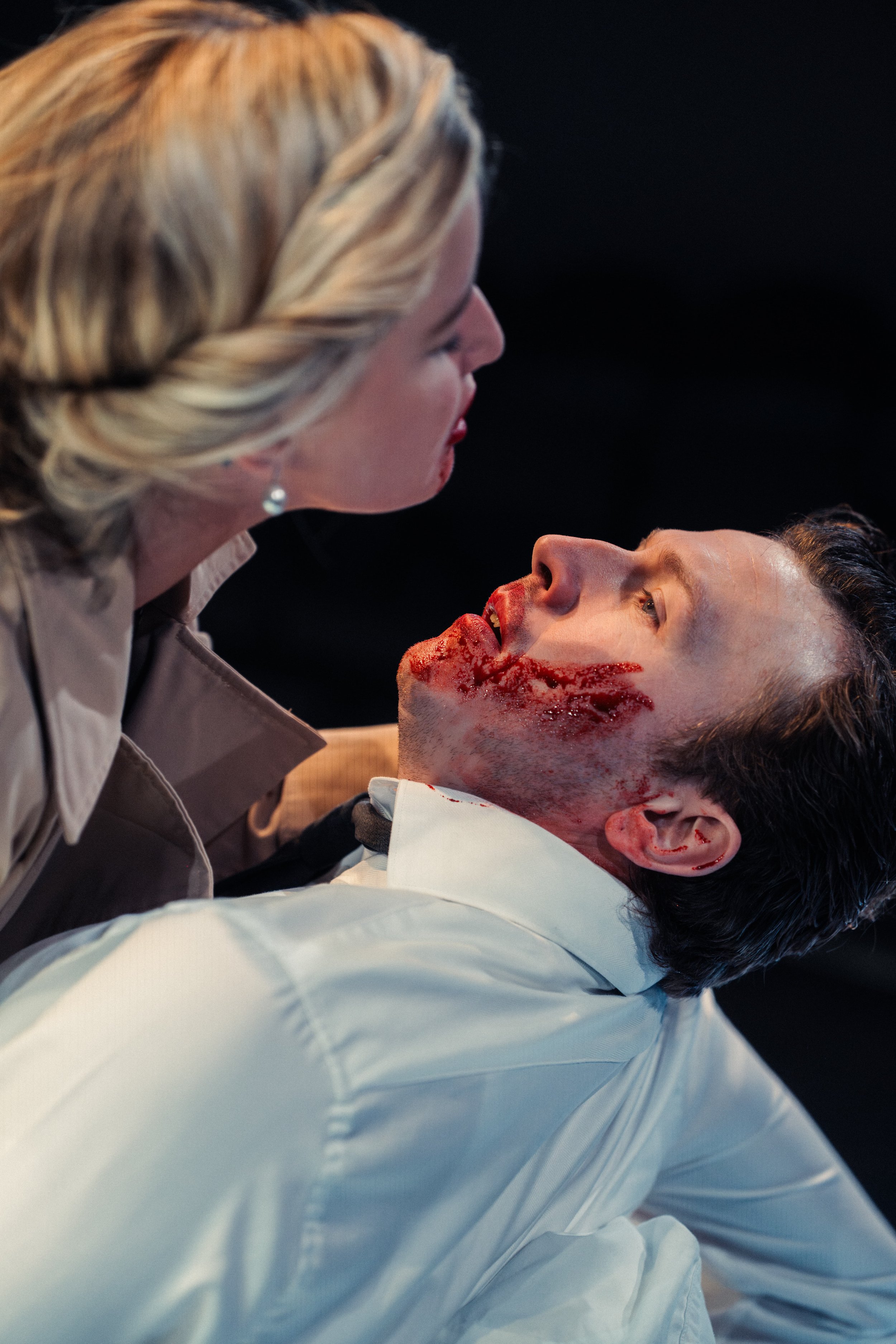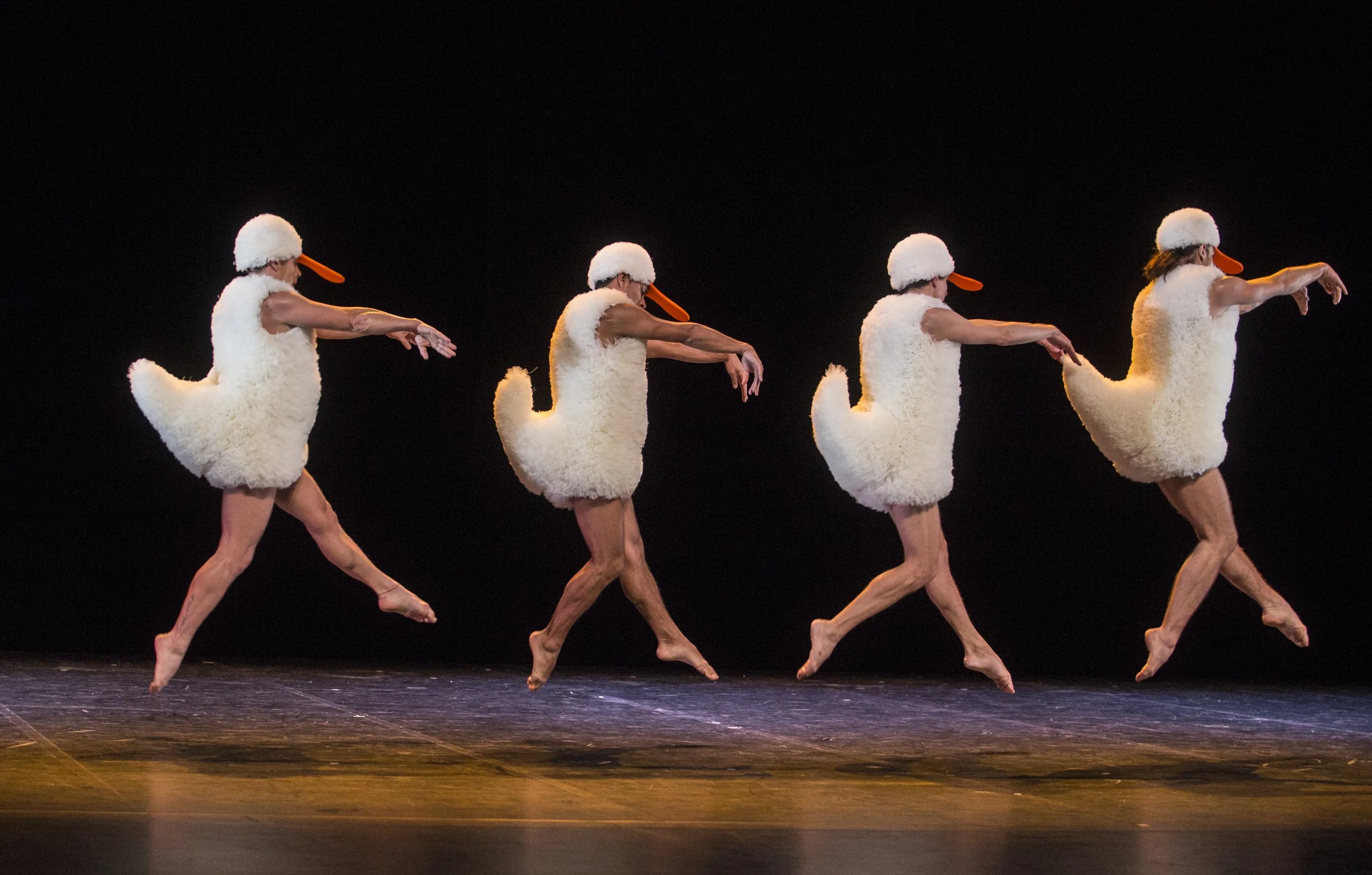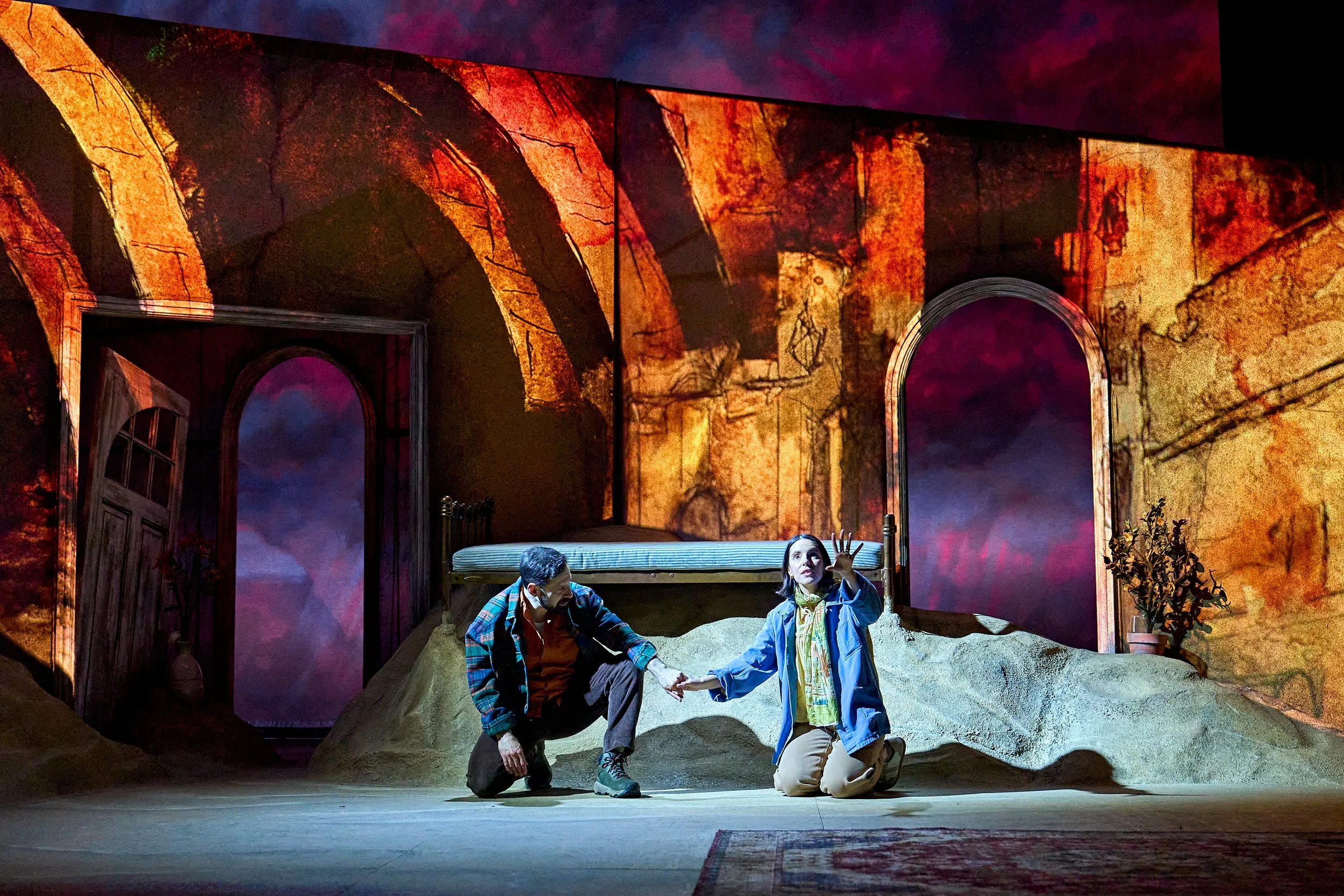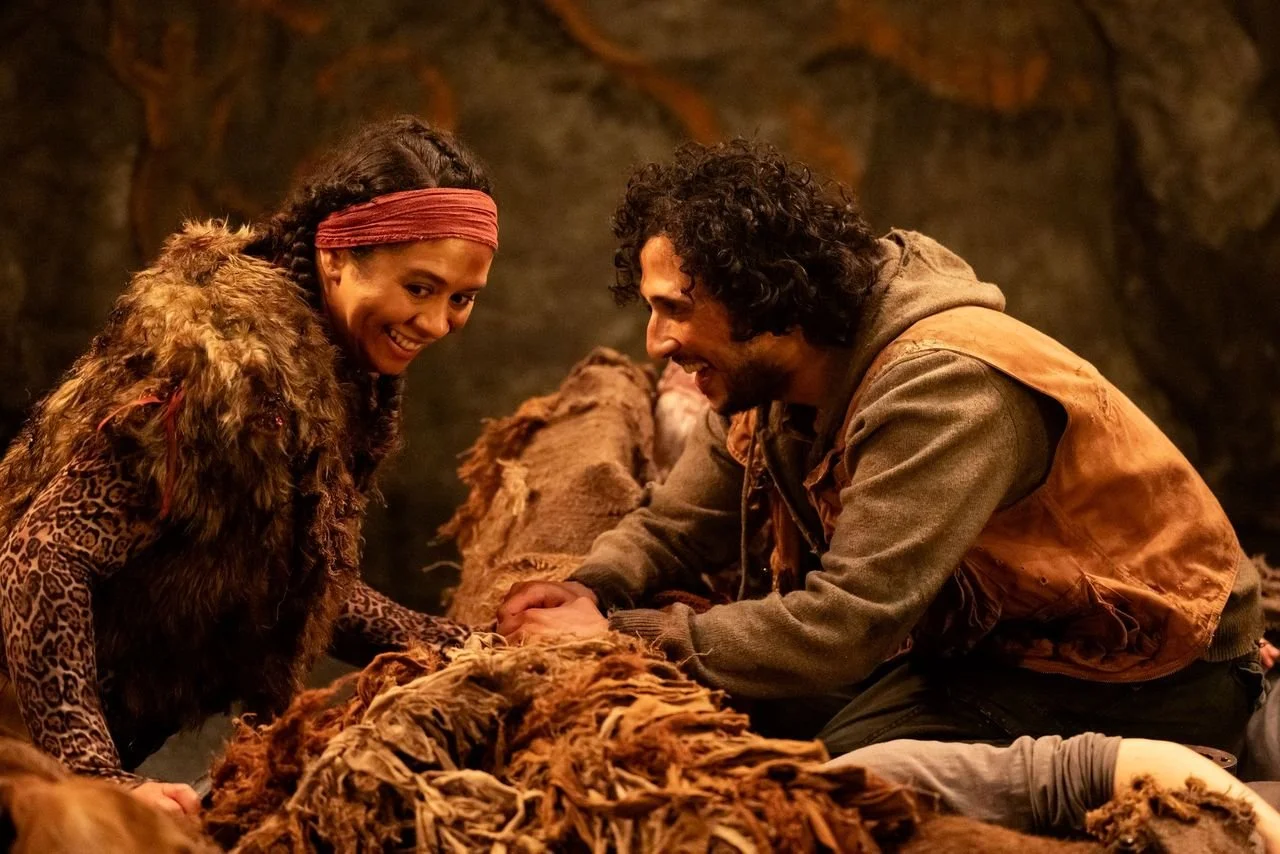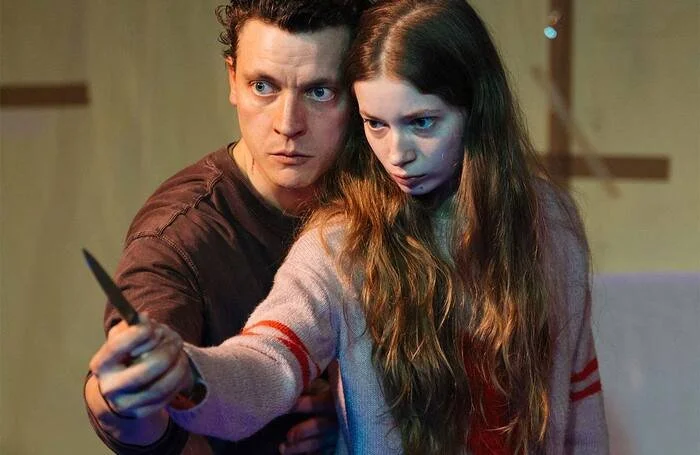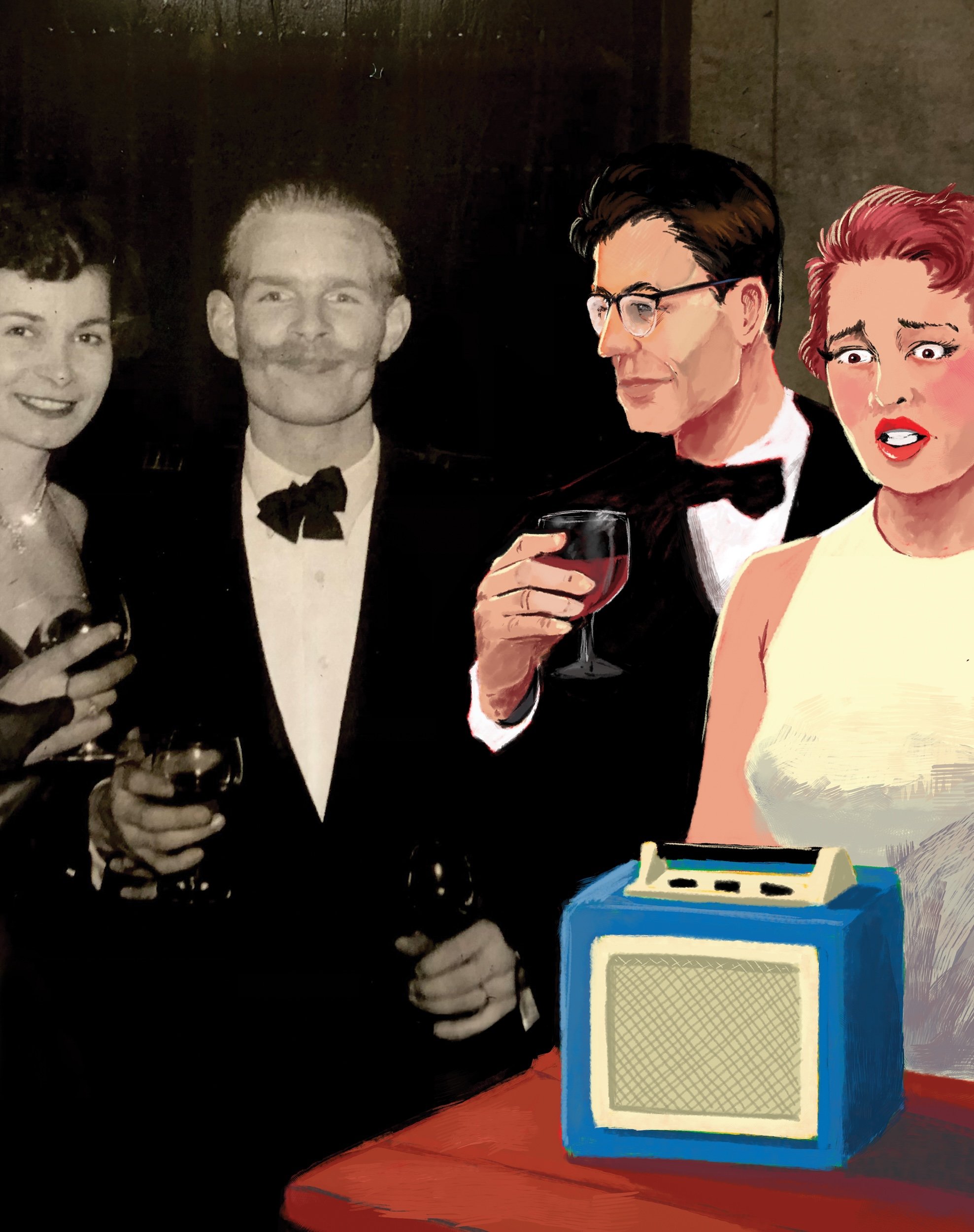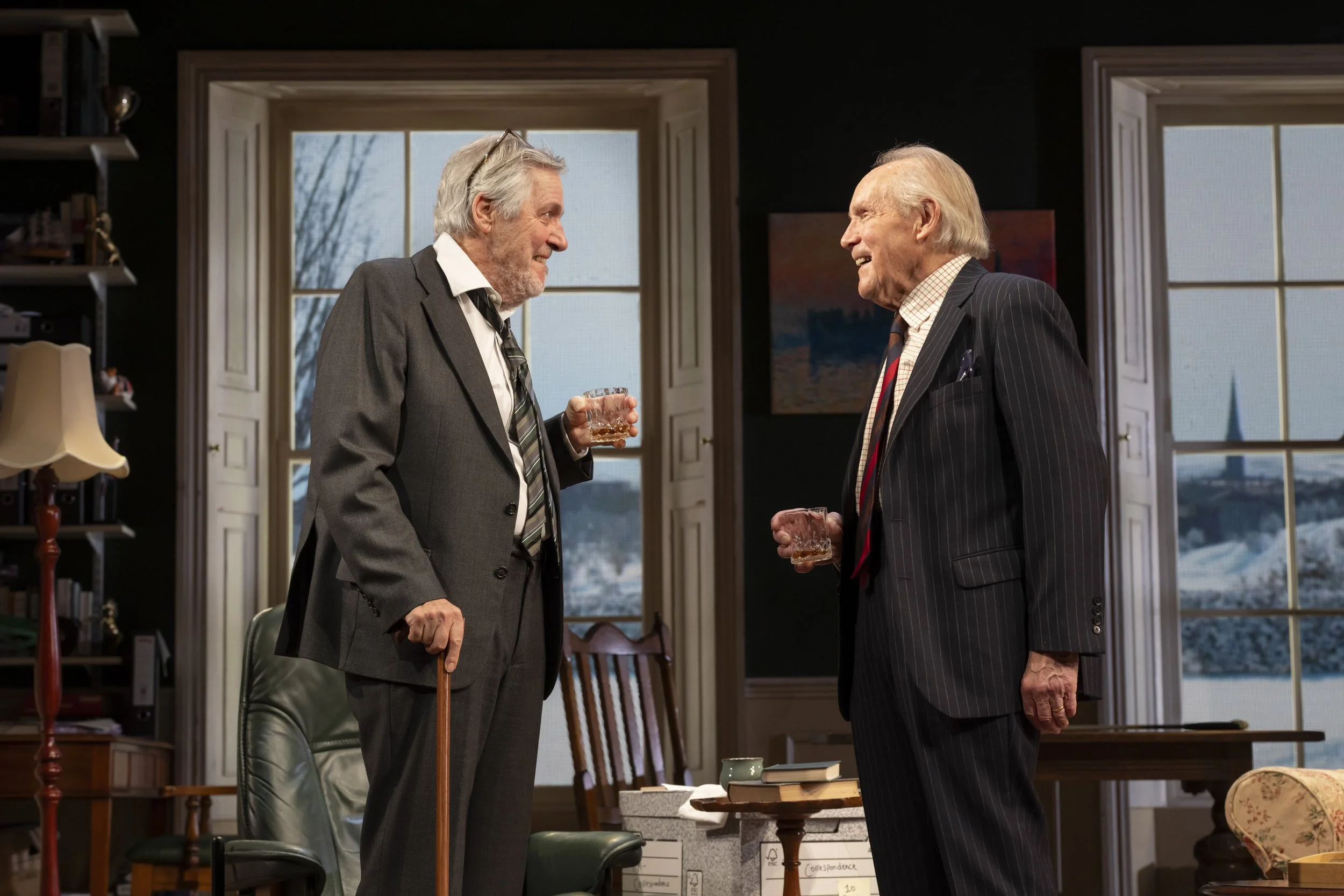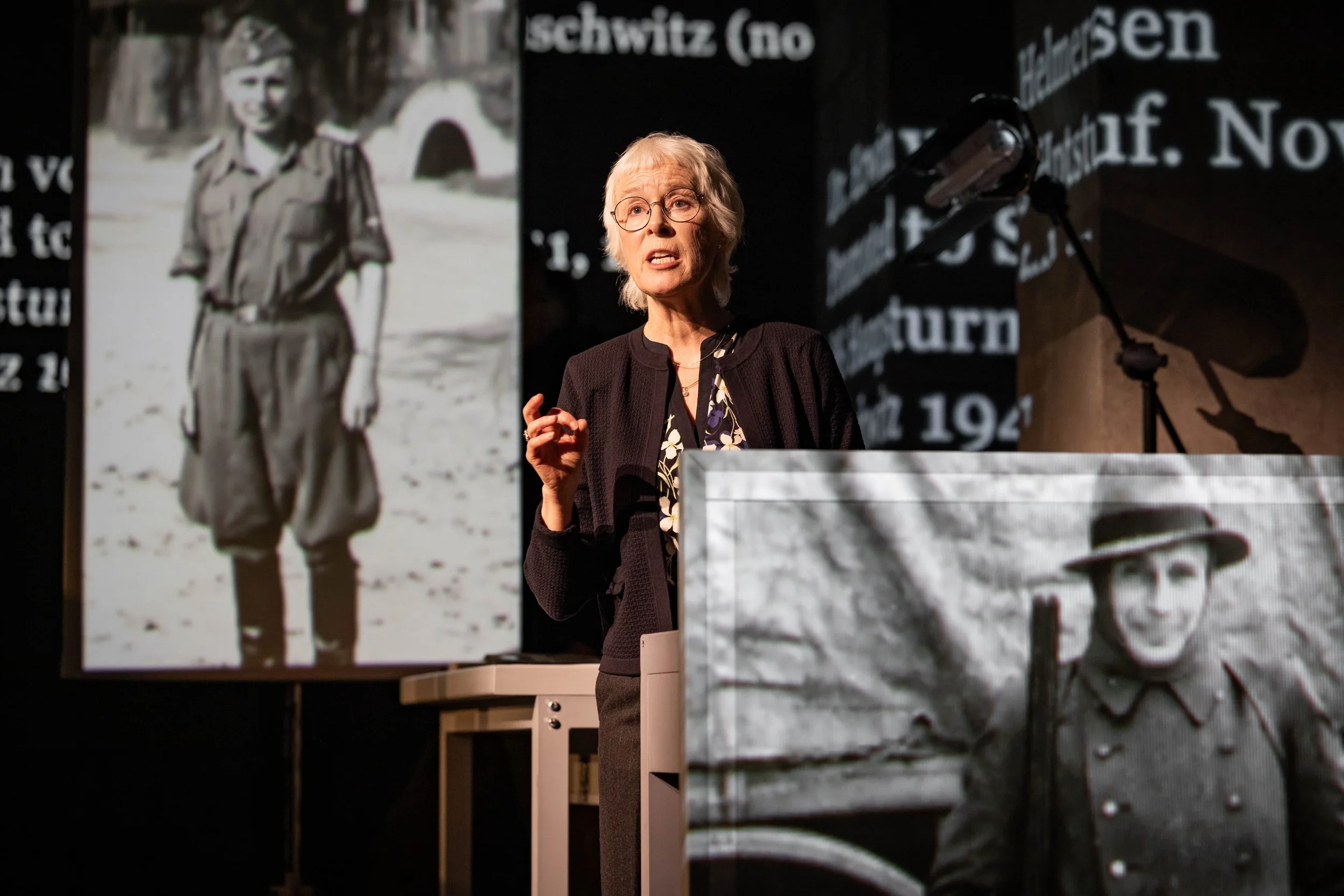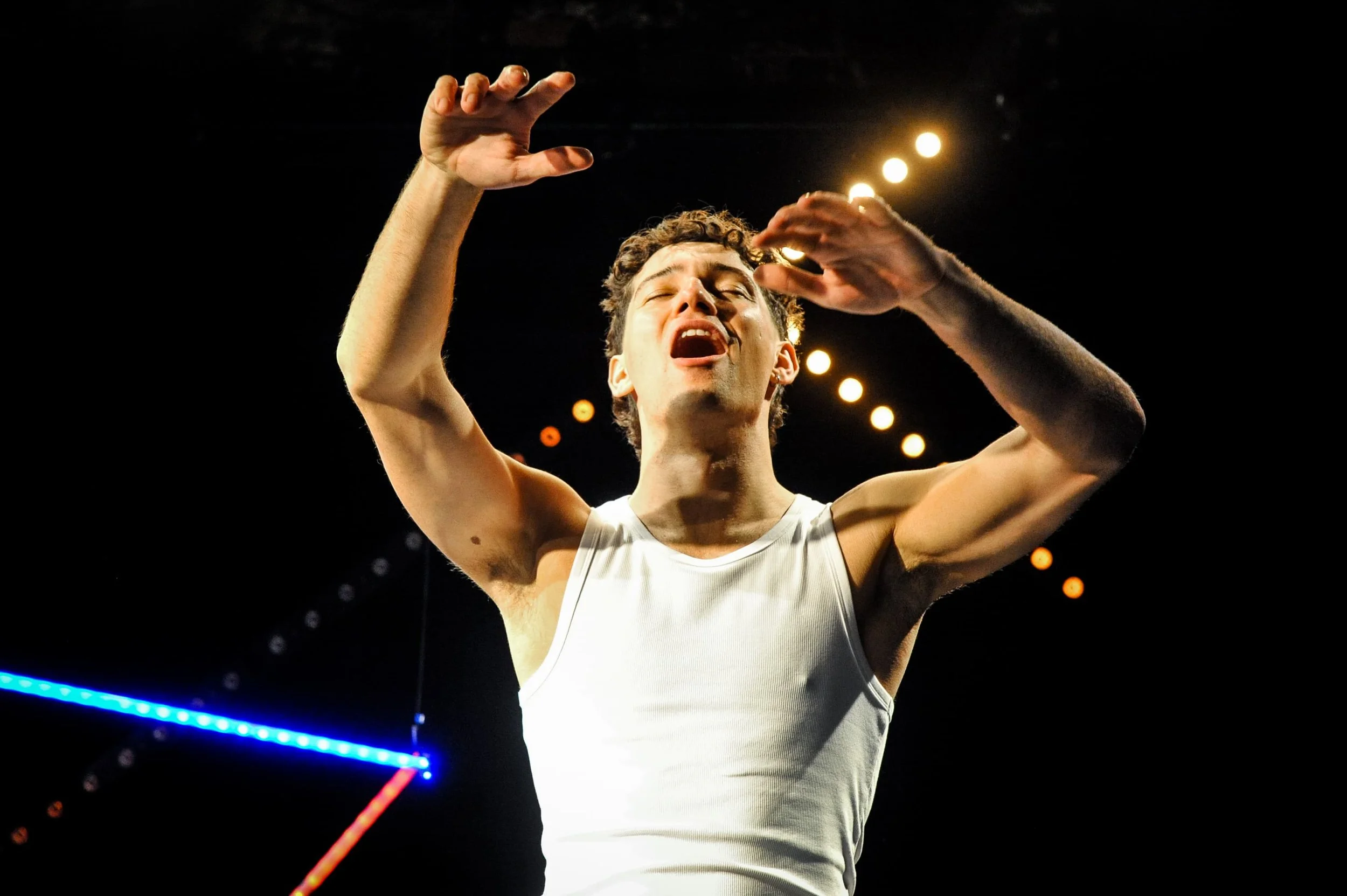Lord of the Flies at Chichester Festival Theatre Review
Lord of the Flies production image. Photo by Manuel Harlan
Written by Rosie for Theatre & Tonic
Disclaimer: Gifted tickets in exchange for an honest review
Trigger warnings: loud, sudden sound effects, flashing/strobing lights, heavy use of fog/haze, fake blood, bullying
After recent events in UK news, Anthony Lau’s direction of “Lord of the Flies” feels eerily timely and scary in a turbulent, ever-changing political climate. William Golding’s 1954 novel is no stranger to a vast number of people in the UK, many studying it in schools, watching various filmed adaptations, or recognising that it is known to be one of the top British novels of all time. Many know the story: a group of young schoolboys are stranded on an island without adult authority and descends into chaos. Yet, in Chichester Festival Theatre’s latest production, adapted for stage by Nigel Williams, it feels as fresh, exciting, and scary as ever when rooted in our current time. Blending thrilling movement, lighting, and sound choices with the actions of the cast, Lau and the performers have you transfixed through the highs and lows of the action throughout the two halves.
Whilst the story is set upon a deserted island, filled with trees and hills and beaches, this particular production makes the bold choice to strip that all away and give the audience not much more than what seems to be a bare sound stage to look at. A few road cases, some scaffolding above the main stage, and a microphone, the sight of the modern, reimagined set had me extremely worried upon arrival. But it was clear pretty early on that when Georgia Lowe’s set was paired with the electrifying lighting design from Matt Daw and sound design by Giles Thomas, the whole piece came together as something more than just a bare sound stage. Most notably, the ‘conch’ Piggy is so obsessed with as an item to allow for speech and democracy is now a microphone; he who has the conch speaks, and he who has this microphone is the loudest and most listened to, even if what the speaker is saying is utter nonsense. I adored this change immediately, feeling as if I were being uncomfortably teleported to a rally where the loudest voice is allowed to control the masses and say whatever he wants, with no consequences faced. It was a powerful motif throughout the piece, who had the microphone, who did not, and who in the end were the ones to stop the microphone from being used by those they disagreed with. Paired with the ever-present soundscape by Thomas, it created the perfect sense of disarray and discomfort for both characters and audience alike.
It was an absolute joy to see the diverse talent that this production brought to the stage, with casting by Jacob Sparrow. Class, youth, and prejudice are deeply rooted in the story’s key talking points; it is less about setting and more about character and morals, and the space they were given allowed them to step into those roles fantastically. Alfie Jallow as Piggy and Tucker St. Ivany as Jack Merridew were particular stand-outs of the show, suitably at odds with one another through conflicting views on class, appearance, and power. Jallow’s childlike innocence and belief in good were convincing from the moment he approached the audience at the very start of the show, waving and happily inviting us to take an interest in him and his outcome. On the opposite end of the spectrum St. Ivany was a compelling contrast to Piggy in every way; his private school boy mannerisms and outlook on life felt not dissimilar to rhetoric heard recently in modern news. Yet, he was still clearly a child - the way he moved, the attempt at trying to be an adult, but everything was still just a game to him and his gang of choristers in the end. The entire ensemble was a great fit for this production, and I was thoroughly impressed by the movement direction of Aline David, which really turned these actors into teenagers rebelling and trying to be adults when the characters so clearly are not.
Speaking about movement, David’s use of dance, chase, and circular movements all played into the idea of primal instinct as well as play. One particular moment, when Jack’s choir are hunting their first meal on the island, we are faced with a game of tickle that quite quickly turns to torture. The power of this moment, where something so harmless like a child and a game of tickle can turn on you completely, had me on the edge of my seat. The entire pig chase sequence also worked so clearly as a distraction from another scene happening on stage, drowning out the important issues with a fun game of hide and seek, catching the pig amongst the audience. Lau and David’s combination of movement and direction for purpose really captured me in unbridled thoughts about distraction in the face of desperation and misery, making Golding’s tale feel just as relevant to the 1950s as it does to 2025.
Only a few moments in the production had me pulled out of the excitement of the piece, almost Brechtian in their approach to have some of the stage crew appear to take the character’s costumes off stage, or help them with cleaning up the blood. These were the only moments of order amongst the boys with adult supervision, but they felt as though they were strange, time-wasting blips in a show that did not necessarily need them. The pacing in the first half was particularly impressive; the gradual build to the climax of the act felt like a real rush, whereas the second half felt a little less exciting due to the nature of the peak of the story. It is a hard balance to tackle, but thanks to the second act being shorter, it manages to pull it off.
All in all, Lau’s production of Lord of the Flies at Chichester Festival Theatre this autumn is an exhilarating, wildly exciting take on the classic book, which tackles action and consequence, mass hysteria, and allows us to look at Golding’s tale in light of the 2025 political landscape. The talented cast takes you on a whirlwind ride through the story’s highs and lows and makes a great show thanks to the incredible lighting, sound, and stage design. It was a real surprising treat and one I think will really resonate with a wide variety of audiences, whether you have any prior knowledge of the story or not.
Lord of the Flies only runs until Saturday 11th October at the Festival Theatre and I think it is certainly not one to miss.
★★★★
Access Notes:
The Festival Theatre is a fully accessible space with lift access. Accessible toilets have audio-visual assistance for those with visual impairments that may need descriptions of where objects are in the space. CFT’s access scheme is easy to navigate and they offer a wide range of accessibility options to patrons, including but not limited to “Buddies” for those who do not feel comfortable attending the theatre alone, touch tours before certain performances and specific seat descriptions for those who need larger seats or specific requirements. See Chichester Festival Theatre’s dedicatedAccess page for more information.

